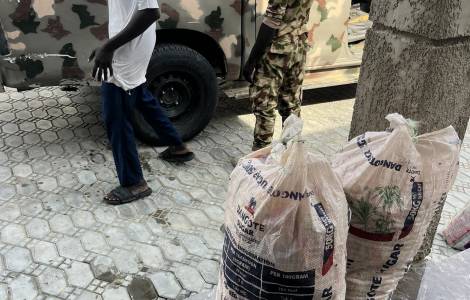
Abuja (Agenzia Fides) - The situation in Maiduguri, the capital of Borno State in north-eastern Nigeria, which was hit by the floods on September 10 following the collapse of the Alau Dam, remains serious (see Fides, 13/9/2024).
According to local sources, six days after the tragedy, people are still trapped in their homes. Some areas are inaccessible even by boat and thousands of people are still stranded with no way to escape. Attempts are being made to supply them with food and drinking water via helicopter.
The rescue teams are calling for the use of army reconnaissance drones to locate the missing and those trapped in the still isolated areas. All hospitals in the region are at full capacity and cannot care for all those affected. Meanwhile, a solidarity race has been launched to provide essential goods and medical care to those affected by the flood disaster. Reception and distribution centres have been set up in church parishes and on the grounds of the University of Maiduguri, while the Nigerian Air Force has set up an airlift to transport the relief supplies. Conditions in the camps for internally displaced persons, such as the camp in Jejeri, which houses 6,000 people without drinking water and sanitation facilities, remain particularly difficult. Also worrying is the fact that large areas of farmland have been flooded, raising fears of future food shortages and rising food prices. Meanwhile, prison police announced that they had captured seven of the 281 inmates who escaped from Maiduguri prison after water entered over the prison's external wall. Finally, a controversial debate ensued over the causes of the tragedy. While it is true that the region has been hit by torrential rains since the end of August, the authorities had received warnings about the possible failure of the dam but had not taken any action. (L.M.) (Agenzia Fides, 16/9/2024)